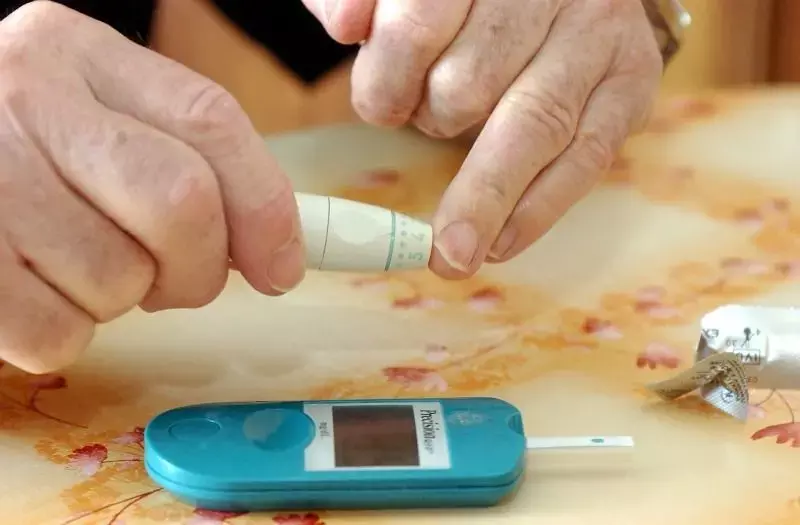- Home
- Medical news & Guidelines
- Anesthesiology
- Cardiology and CTVS
- Critical Care
- Dentistry
- Dermatology
- Diabetes and Endocrinology
- ENT
- Gastroenterology
- Medicine
- Nephrology
- Neurology
- Obstretics-Gynaecology
- Oncology
- Ophthalmology
- Orthopaedics
- Pediatrics-Neonatology
- Psychiatry
- Pulmonology
- Radiology
- Surgery
- Urology
- Laboratory Medicine
- Diet
- Nursing
- Paramedical
- Physiotherapy
- Health news
- Fact Check
- Bone Health Fact Check
- Brain Health Fact Check
- Cancer Related Fact Check
- Child Care Fact Check
- Dental and oral health fact check
- Diabetes and metabolic health fact check
- Diet and Nutrition Fact Check
- Eye and ENT Care Fact Check
- Fitness fact check
- Gut health fact check
- Heart health fact check
- Kidney health fact check
- Medical education fact check
- Men's health fact check
- Respiratory fact check
- Skin and hair care fact check
- Vaccine and Immunization fact check
- Women's health fact check
- AYUSH
- State News
- Andaman and Nicobar Islands
- Andhra Pradesh
- Arunachal Pradesh
- Assam
- Bihar
- Chandigarh
- Chattisgarh
- Dadra and Nagar Haveli
- Daman and Diu
- Delhi
- Goa
- Gujarat
- Haryana
- Himachal Pradesh
- Jammu & Kashmir
- Jharkhand
- Karnataka
- Kerala
- Ladakh
- Lakshadweep
- Madhya Pradesh
- Maharashtra
- Manipur
- Meghalaya
- Mizoram
- Nagaland
- Odisha
- Puducherry
- Punjab
- Rajasthan
- Sikkim
- Tamil Nadu
- Telangana
- Tripura
- Uttar Pradesh
- Uttrakhand
- West Bengal
- Medical Education
- Industry
GLP-1 receptor agonists reduce risk of death from cardiovascular causes in diabetic patients

China: In studies assessing cardiovascular outcomes, glucagon-like peptide-1 (GLP-1) receptor agonist medication might lower the risk of mortality from cardiovascular causes and fatal or nonfatal stroke compared to placebo, says an article published in BMC Journal.
Patients with type 2 diabetes are at a very high risk of cardiovascular events, including mortality from cardiovascular causes, fatal or non-fatal myocardial infarction, and fatal or non-fatal stroke. GLP-1 receptor agonists, which are used as glucose-lowering chemotherapeutic drugs in the treatment of type 2 diabetes mellitus, have been demonstrated to alter the incidence of cardiovascular events in patients with type 2 diabetes mellitus, albeit the data are inconsistent. The cardiovascular clinical manifestations of glucagon-like peptide-1 receptor agonists in the management of type 2 diabetes mellitus (T2DM) patients remain debatable. Jing Qin and colleagues conducted this study to assess the risk of cardiovascular events associated with GLP-1 (exenatide, albiglutide, liraglutide, lixisenatide, semaglutide, and dulaglutide) receptor agonists in T2DM patients.
From inception to June 2019, PubMed and Embase were searched for relevant randomized controlled trials (RCTs) that investigated the impact of GLP-1 receptor agonists on cardiovascular events in T2DM patients. All eligible studies' T2DM patients received either GLP-1 medication or placebo, and the cardiovascular outcomes comprised mortality from cardiovascular causes, fatal or non-fatal myocardial infarction, and fatal or non-fatal stroke.
The key findings of this study were as follow:
1. This analysis includes six global double-blind randomized placebo-controlled studies with 52821 T2DM patients.
2. When compared to the placebo controls, GLP-1 receptor agonists reduced the risk of mortality from cardiovascular causes and fatal or non-fatal stroke.
3. However, as compared to the placebo, GLP-1 receptor agonists had no effect on fatal or non-fatal myocardial infarction.
In conclusion, this study found that GLP-1 receptor agonist medication decreased the risk of mortality from cardiovascular causes and fatal or non-fatal stroke in T2DM patients. Additional big RCTs are needed in the future to examine the therapeutic potential of GLP-1 receptor agonists in T2DM.
Reference:
Qin, J., & Song, L. (2022). Glucagon-like peptide-1 (GLP-1) receptor agonists and cardiovascular events in patients with type 2 diabetes mellitus: a meta-analysis of double-blind, randomized, placebo-controlled clinical trials. In BMC Endocrine Disorders (Vol. 22, Issue 1). Springer Science and Business Media LLC. https://doi.org/10.1186/s12902-022-01036-0
Medical Dialogues consists of a team of passionate medical/scientific writers, led by doctors and healthcare researchers. Our team efforts to bring you updated and timely news about the important happenings of the medical and healthcare sector. Our editorial team can be reached at editorial@medicaldialogues.in.
Dr Kamal Kant Kohli-MBBS, DTCD- a chest specialist with more than 30 years of practice and a flair for writing clinical articles, Dr Kamal Kant Kohli joined Medical Dialogues as a Chief Editor of Medical News. Besides writing articles, as an editor, he proofreads and verifies all the medical content published on Medical Dialogues including those coming from journals, studies,medical conferences,guidelines etc. Email: drkohli@medicaldialogues.in. Contact no. 011-43720751


